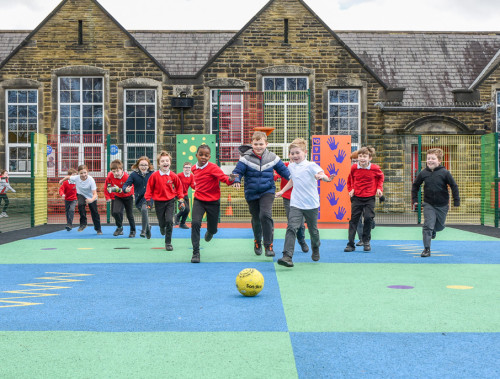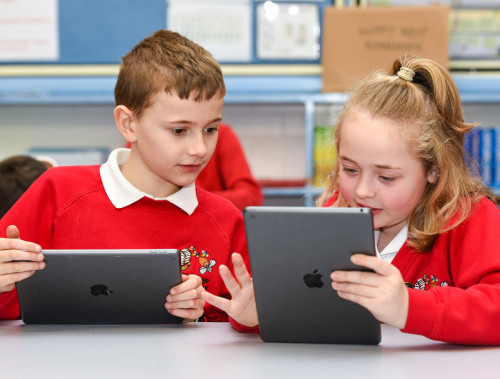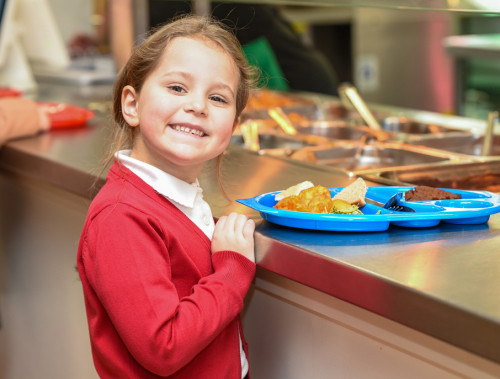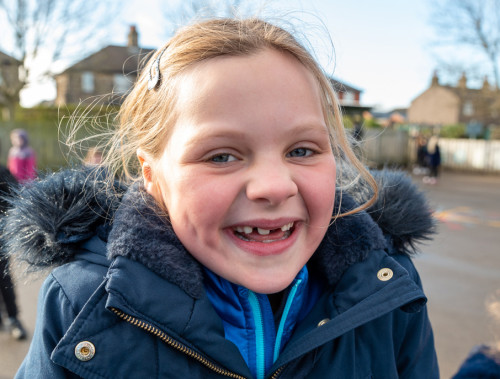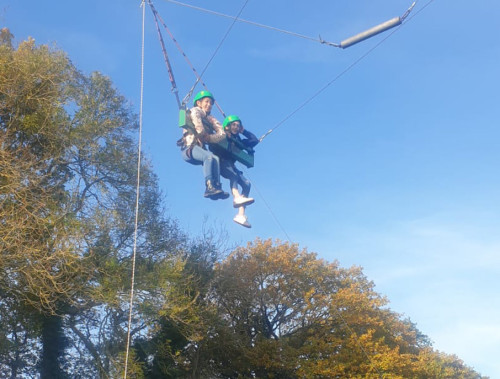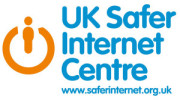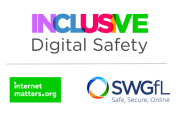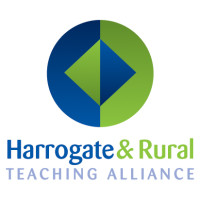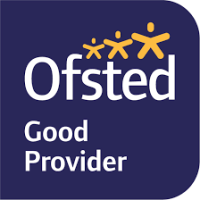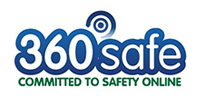Online Safety
“Being online is an integral part of children and young people’s lives. Social media, online games, websites and apps can be accessed through mobile phones, computers, laptops and tablets – all of which form a part of children and young people’s online world. The internet and online technology provide new opportunities for young people's learning and growth, but it can also expose them to new types of risks.”
nspcc.org.uk

Reporting concerns
Are you worried about the way someone online has been communicating with you or someone you know? If so, please click the CEOP link.
If an incident involves a member of our school community, please contact Bilton Grange immediately.
Our Designated Safeguarding Lead is Helen Ashby-Smith and our Online Safety Lead is Ashley Bolton.
If you are concerned that your child is in immediate danger, call 999.
Online Safety at Bilton Grange
Online safety should be recognised as both a philosophy and a statutory requirement. It is defined not only by policy but also by leadership, infrastructure, education, monitoring and review. This wider view will lead to cultural changes needed to support online safety in practice.
Online Safety Curriculum
Our whole school approach to online safety helps to ensure staff, governors, volunteers and parents educate themselves and children about online safety. We have a dual responsibility: to ensure the school’s online procedures keep children and young people safe, and to teach them about online safety, in and outside of school.
At Bilton Grange, we foster an open environment in which children and young people are encouraged to ask any questions and participate in an ongoing conversation about the benefits and dangers of the online world.
The UK Council for Internet Safety (UKCIS) has produced a framework to equip children and young people for digital life: Education for a Connected World framework. It comprises of a group of more than 200 organisations, drawn from across government, industry, law, academia and charity sectors, that work in partnership to help keep children safe online.
The framework supports one of the key aims of the government’s Internet Safety Strategy: supporting children to stay safe and make a positive contribution online, as well enabling teachers to develop effective strategies for understanding and handling online risks.
Timetabled cross the years spent in EYFS, KS1, Lower KS2 and Upper KS2 children will be taught about the following:
- Self-image and identity
- Online relationships
- Online reputation
- Online bullying
- Managing online information
- Health, well-being and lifestyle
- Privacy and security
- Copyright and ownership
Over the years, Safer Internet Day has become a landmark event in the online safety calendar.
Marked each year at Bilton Grange, the aim of Safer Internet Day (SID) is to inspire a conversation about using technology responsibly, respectfully, critically and creatively. From cyberbullying, to social networking, to digital identity, Safer Internet Day aims to raise awareness of emerging online issues and current concerns.
Policy and Practice:
The ‘360 degree safe’ online safety self-review tool aids the termly review of our policy and practice.
Online Safety Information and Guidance for Parents and Carers
As adults, we need to do everything we can to keep the children in our care safe in the digital world. But, with new apps, games and platforms emerging every day, how can you stay in the know? The following apps and websites are full of expert advice:
With all online safety knowledge available at your fingertips, the National Online Safety Mobile App empowers parents and teachers to understand and address online safeguarding risks – anytime, anywhere. It is packed full of guides on topics that will help you protect the children in your care when they’re online.
Think-u-Know home activity packs include simple 15-minute activities you can do with your child to support their online safety at home. Download your pack today!
Parents and Carers Toolkit - three resources that offer practical tips and advice on different aspects of keeping your child safe online.
Get expert support and practical tips to help children benefit from connected technology and the internet safely and smartly.
It may feel daunting to talk about staying safe online – especially when your children are using the internet differently to you. We have advice and support to help.
Empowering parents, carers, and professionals with tailored advice and insight to make meaningful interventions in the lives of children and young people most likely to experience online risks, this advice hub is the first of its kind.
Common Sense Media (CSM) is a non-profit organization that "provides education and advocacy to families to promote safe technology and media for children."
PEGI provides age classifications for video games in 38 European countries. The age rating confirms that the game is appropriate for players of certain age. PEGI considers the age suitability of a game, not the level of difficulty.
In order to promote the importance of online safety and help support parents and carers in keeping their children safe, they receive an 'Online Safety Newsletter' via email each month (also available on this webpage). Published by Knowsley City Learning Centres, each newsletter is packed full of useful advice based on the latest guidance and information. If you would like any further information, please contact school and ask for Mrs Robbins, our Online Safety Lead.
Story Books about Staying Safe Online
Online Safety Story Books provide amazing opportunities for parents to read together and learn with children. These books can be used to start conversations about online safety early (and often) and enable us to explore children’s knowledge and understanding about online behaviours and risks. Storybooks can enable adults to confidently facilitate age-appropriate discussions about online behaviour, as well as considering the wider impact of modern technology on everyday values.
For further activities to use with your child, please go to the ‘Children’ tab at the top of the school website.
Parental Control and Monitoring
Our children and young people are 'digital natives' who grow up surrounded by digital information and entertainment on screens. Time spent on screens – from social media to computers and television – is a major part of modern life and a necessary part of modern education. However, screen time has been cited in the media as the cause of obesity, mental health problems and educational failure, but the evidence base for a direct ‘toxic’ effect has always been contested. It is clear that trends towards poorer mental health amongst young people in the UK were evident before the advent of social media and digital technologies. There are a separate set of concerns about the specific content of screen use: these vary from concerns about exposure to violence in films, to the effect of cyberbullying through social media; with particular concern over the impact of social media on mental wellbeing amongst children. For more advice, please click on the following link - The health impacts of screen time: a guide for clinicians and parents
If you intend to monitor your children's device activity in the modern age, you need a parental control service that works well on mobile platforms, in addition to the desktop. A good parental control app can restore your sense of control and help you keep a cautious eye out for anything that can harm them.
However, be sure to have open and ongoing conversations with your children about the importance of responsible device usage. Parental control apps can help you maintain control in a variety of ways. Some of the most common types of monitoring include web content filtering, app blocking, time management, and location tracking.
There are lots of simple things you can do as a parent/ carer to ensure that you feel confident about your child’s interaction with technology, and set achievable goals that work for your family.
The UK Interactive Entertainment Association (Ukie) has launched the Get Smart About P.L.A.Y campaign, encouraging more parents and carers to use tools that manage screen time and in-game purchases on video game consoles.
